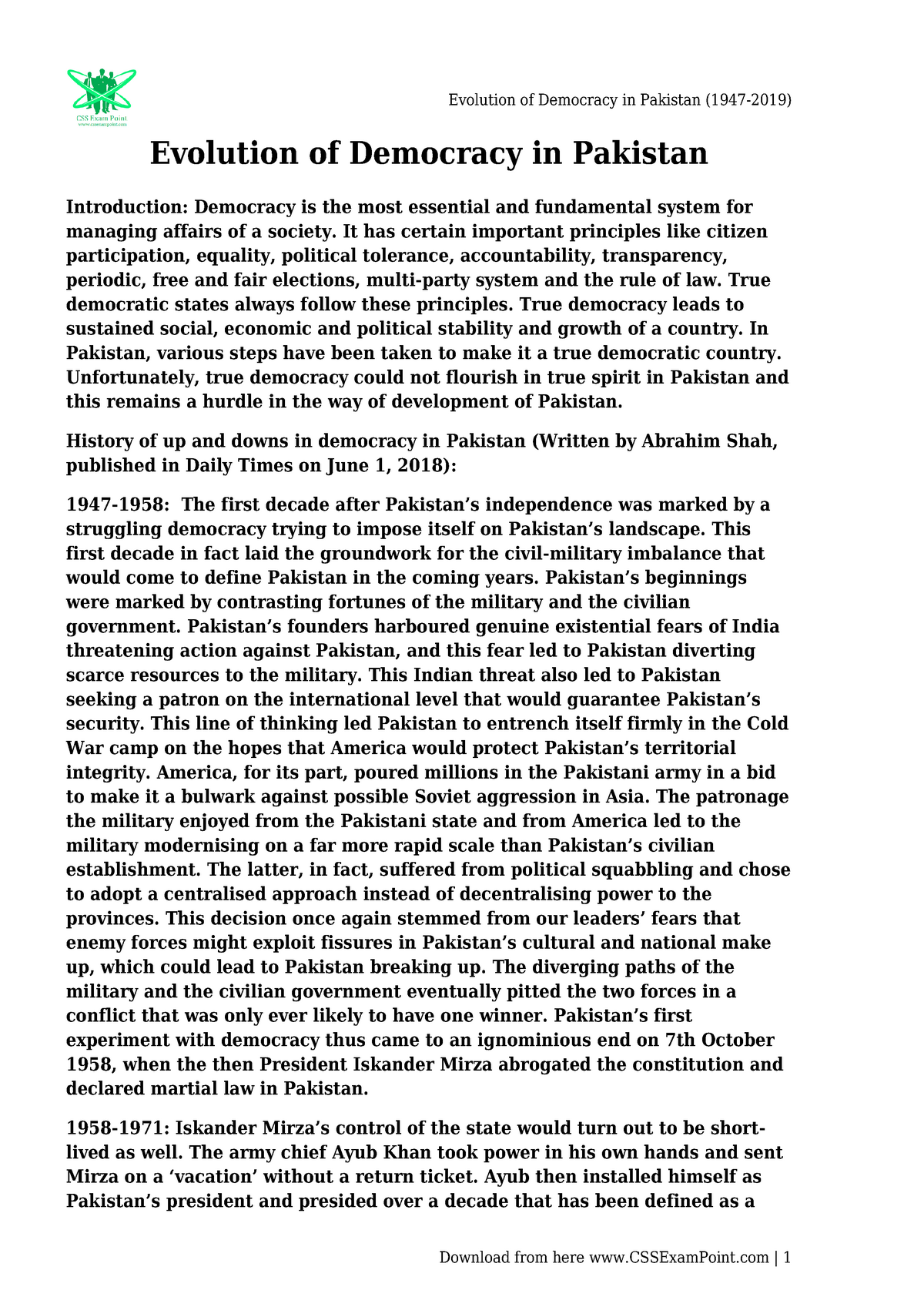M. Evolution of democracy and democratic institutions in Pakistan.

The evolution of democracy and democratic institutions in Pakistan has been marked by a number of challenges and setbacks, including military rule, political instability, and weak governance.
Pakistan gained independence in 1947, and initially established a parliamentary democracy under the 1956 constitution. However, the country’s democratic system was undermined by a number of factors, including corruption, weak governance, and military interventions.
The first military coup in Pakistan took place in 1958, when General Ayub Khan overthrew the civilian government and established a military dictatorship. General Yahya Khan took power in 1969, and oversaw a bloody civil war and the eventual separation of East Pakistan in 1971.
The 1973 constitution established Pakistan as a federal parliamentary republic, and democratic elections were held in 1977. However, the election was marred by allegations of fraud, and General Zia-ul-Haq seized power in a military coup later that year.
Under General Zia’s rule, Pakistan experienced a period of political repression and authoritarianism, with opposition parties and civil society groups facing harassment and persecution. The country’s democratic institutions were weakened, and political power was concentrated in the hands of the military and intelligence services.
In the late 1980s and early 1990s, Pakistan saw the restoration of democracy, with the country’s first female prime minister, Benazir Bhutto, coming to power in 1988. However, Bhutto’s government was marred by allegations of corruption and mismanagement, and was overthrown in 1990 by President Ghulam Ishaq Khan.
In recent years, Pakistan has seen a number of democratic governments come to power, including the Pakistan Muslim League-Nawaz (PML-N) and the Pakistan Tehreek-e-Insaf (PTI) party. However, the country’s democratic institutions remain weak, with corruption, political violence, and weak governance continuing to undermine the country’s democratic system.
Overall, the evolution of democracy and democratic institutions in Pakistan has been marked by a number of challenges and setbacks, but the country continues to make progress towards a more stable and democratic system of government.